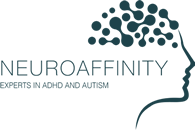WHY TO CONSIDER AN ADHD DIAGNOSIS
Considering an ADHD diagnosis for a child or adolescent is important because it helps explain why they might have difficulties with attention, impulsivity, or hyperactivity. This understanding allows for appropriate support and interventions to be put in place, helping them succeed in school, social situations, and at home. Ultimately, this can improve their quality of life and self-esteem. Early diagnosis is essential for maximizing positive outcomes and reducing negative effects, such as low self-esteem or academic struggles, which can occur if ADHD goes untreated.

Considering an ADHD diagnosis for a child or adolescent is important because it helps explain why they might have difficulties with attention, impulsivity, or hyperactivity. This understanding allows for appropriate support and interventions to be put in place, helping them succeed in school, social situations, and at home. Ultimately, this can improve their quality of life and self-esteem. Early diagnosis is essential for maximizing positive outcomes and reducing negative effects, such as low self-esteem or academic struggles, which can occur if ADHD goes untreated.
Similarly, adults often seek an ADHD assessment because they feel that something is different about them or struggle to manage everyday demands. This could show up as challenges at work, issues in personal relationships, or misdiagnoses of other mental health conditions that do not match their experiences. Many people with ADHD were not recognized as children and may have been labeled as “lazy” or “troublesome.” Some may cope with overwhelming feelings by turning to substances or may struggle with addiction.
For adults, ADHD symptoms might have always been present but were manageable when responsibilities were fewer. As life demands increase—like parenting, running a household, or advancing in a career—these challenges often become more pronounced, affecting their ability to focus, organize, and stay calm. Pursuing an ADHD diagnosis can be a critical step in understanding and managing the unique challenges and strengths of living with ADHD. Although ADHD can bring difficulties, obtaining an official diagnosis offers valuable benefits, including access to effective treatments and a deeper understanding of oneself. Here are some reasons why seeking an ADHD diagnosis can be worthwhile:

1
Understanding Symptoms
- Clarity: An official diagnosis can provide clarity about symptoms and behaviours that may have been confusing or misunderstood.
- Validation: It validates the experiences and challenges faced by the individual, helping them understand that these are part of a recognized condition.
2
Access to Treatment
- Medication: A diagnosis opens the door to medications that can significantly improve focus, attention, and overall quality of life.
- Therapy and Support: It allows access to therapeutic interventions, such as cognitive-behavioural therapy, which can help develop coping strategies and skills.
3
Improved Functioning
- Academic and Occupational Support: With a diagnosis, individuals can receive accommodations at school or work, such as extra time on tests or a quieter work environment.
- Personal Relationships: Understanding ADHD can improve relationships by fostering empathy and understanding among family and friends.
4
Personalized Strategies
- Tailored Approaches: A diagnosis allows for personalized strategies to manage symptoms, such as organizational tools, mindfulness practices, and lifestyle changes.
- Empowerment: Knowledge about ADHD empowers individuals to make informed decisions about their health and well-being.
5
Prevention of Secondary Issues
- Mental Health: Early diagnosis and treatment can prevent the development of secondary mental health issues, such as anxiety and depression.
- Self-Esteem: Addressing ADHD can improve self-esteem and reduce the feelings of frustration and inadequacy often experienced by individuals with ADHD.
6
Community and Resources
- Support Networks: A diagnosis connects individuals to support groups and communities where they can share experiences and learn from others.
- Educational Resources: Access to resources and information about ADHD can help individuals and their families better understand and manage the condition.
7
Long-Term Benefits
- Life Management: Proper diagnosis and treatment can improve overall life management, including time management, goal-setting, and achieving personal aspirations.
- Quality of Life: Ultimately, a diagnosis can lead to a significant improvement in the quality of life, allowing individuals to thrive and reach their full potential.
CONTACT US TODAY
Connect with qualified specialists through our quick and streamlined online or face to face assessment process.
Experience the perfect blend of expertise and convenience.











